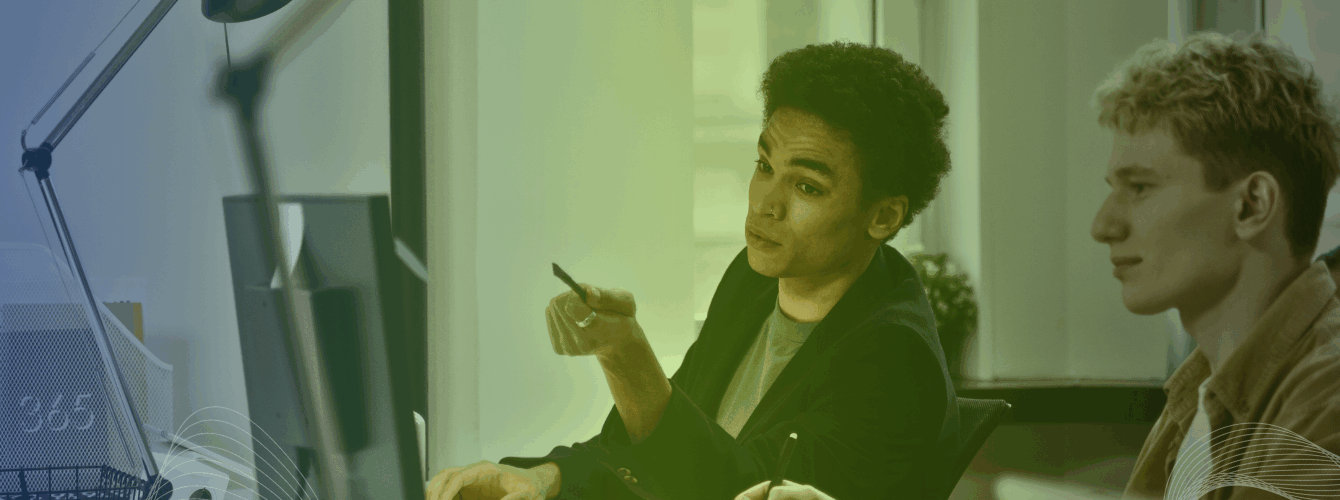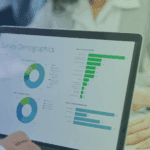In an increasingly people-centric workplace hiring for skill alone is not enough. You can train someone on tools and processes but you cannot train them to genuinely listen, resolve conflict, show empathy or stay calm under pressure. These are soft skills and they have become one of the most important indicators of long term success in any role across industries.
Traditional hiring practices are still heavily focused on hard credentials. Resumes outline what someone has done, where they studied and which companies they worked for. But none of that tells you how they will behave on your team, in your culture or under your leadership. This disconnect often results in mismatched hires who perform well on paper, but struggle to collaborate or align with your values.
As hiring becomes faster, remote and more competitive soft skills matter even more. A person’s ability to think critically, adapt to change and lead others is now more important than ever. But evaluating these qualities at scale, fairly and consistently without losing empathy is one of the biggest challenges HR leaders face today.
The challenge: limited time, subjective opinions, inconsistent panels.
If you have ever sat in a hiring debrief you already know the challenge. One panelist says the candidate was confident and articulate. Another flags the same behavior as dominating and aggressive. A third says they are unsure and need more time. Now multiply this across ten candidates, three roles and five reviewers and you end up with fragmented feedback that lacks direction or consistency.
This is not a one off problem. It is systemic. Interviews are often rushed and scheduled between meetings. Interviewers rarely align on what soft skills to assess or how to rate them. Without a structured framework most panels rely on intuition and personal experience. This leads to biased poor decisions and ultimately poor hires.
For growing companies this problem scales quickly. The more roles you open the harder it becomes to maintain alignment across teams. Some interviewers focus only on technical questions while others give all candidates the benefit of the doubt. Subjective evaluations not only affect hiring speed but also dilute your team’s values and hiring standards.
In distributed teams or remote hiring setups the gaps are even wider. Without hallway conversations or real time syncs reviewers often miss context or misinterpret signals. Feedback gets buried in emails or scattered across sheets. The candidate experience suffers and so does your employer brand.
Time pressure is another major challenge. Most hiring managers simply do not have hours to spend on detailed soft skill reviews. They are juggling team needs, project deadlines and resource planning. As a result early round evaluations often get cut short and decisions are made without a full understanding of the person behind the profile.
Structure brings fairness — Hirevize custom evaluation criteria and star scoring
Hirevize solves this problem by introducing structure without complexity. The platform allows hiring teams to define soft skill criteria that are directly relevant to each role. You can create role based rubrics that focus on qualities like ownership adaptability, communication or problem solving. This makes sure that every candidate is being assessed on what actually matters for the position and not just general impressions.
Each reviewer scores candidates on each criteria using a consistent star based rating system. This simple approach removes ambiguity and helps standardize how feedback is captured across the panel. Whether a candidate is being reviewed by a product manager, a recruiter or a department head their performance is evaluated through the same lens.
This consistency brings fairness and transparency to hiring. Everyone knows what to look for and how to rate it. There are no vague comments like great energy or seems promising without context. Each score is tied to a defined skill and backed by specific observations.
Structure also enables scalability. Whether you are a startup hiring your first few team members or a midsize business managing multiple openings the evaluation process remains reliable. As your team grows new reviewers can quickly get up to speed with existing criteria and scoring systems. This means less training time and fewer hiring mistakes.
It also helps improve accountability. Since every score and comment is logged, interviewers know that their feedback is part of a broader hiring decision. This encourages more thoughtful input and reduces impulsive judgments. Over time this builds a culture of high quality hiring across your organization.
Bringing in AI summaries without removing human judgment
Artificial intelligence is often misunderstood in hiring. It is not about replacing human insight but enhancing it. At Hirevize we use AI to help hiring teams move faster and make better decisions without removing their voice from the process.
When a candidate completes a video interview the AI engine analyzes their responses and generates summaries based on the predefined evaluation criteria. This helps reviewers get a quick overview of each candidate’s soft skill performance before diving into the details. It is especially useful when you are screening dozens of candidates across multiple roles.
The summaries are generated from actual responses so they reflect tone structure and content. Reviewers can then choose to jump to specific answers, watch videos at double speed or rewind to key moments. This reduces review time while maintaining a complete view of the candidate.
Importantly, the AI does not make decisions or assign final scores. It simply highlights patterns, strengths and red flags to guide human reviewers. You still control the scoring and final verdict. The AI acts as a co-reviewer helping you focus your time where it matters most.
This approach is a significant upgrade from traditional hiring tools. Instead of spending hours watching full interviews or reading scattered notes reviewers can process applications faster and more thoroughly. This not only improves hiring speed but also raises the quality of evaluation.
It also reduces decision fatigue. When you are reviewing multiple candidates it is easy to lose track or miss details. AI summaries help you stay consistent without relying on memory or scattered feedback.
Centralized reviews with tagged feedback and reviewer roles
Collaboration is critical to effective hiring. Yet in many companies interview feedback is disorganized and hard to follow. Some teams use spreadsheets, others rely on emails or slack messages and many still take notes on paper. This creates silos, miscommunication and delays.
Hirevize addresses this with a centralized dashboard that brings everyone together. Each reviewer is assigned a role such as admin, recruiter or interviewer. Permissions and responsibilities are clearly defined so everyone knows what to focus on.
Feedback is tagged by skill and stored in real time. This means hiring managers can see exactly who said what about which candidate and why. There is no need to hunt for comments across threads or chase team members for updates.
The shared review log helps align decisions across teams and locations. Whether your interviewers are in different cities or reviewing asynchronously they all access the same information in the same format. This creates a single source of truth that improves collaboration and transparency.
It also helps during hiring debriefs. Instead of subjective summaries or hearsay you get structured data that shows how candidates performed across criteria. You can compare scores, spot gaps and make more confident decisions.
For HR leaders this also provides a clear audit trail. If a candidate challenges a decision or if you need to review past hiring choices you have detailed records to reference. This is especially important in regulated industries or high volume hiring environments.
Balance Structure with Empathy
Start evaluating people, not just profiles.
Hiring is ultimately about people not profiles. Behind every application is a human being with unique strengths, perspectives and motivations. Soft skills are how we connect, lead and grow with others. They deserve the same level of rigor and respect as technical abilities.
But fairness does not mean being robotic. The best hiring decisions happen when structure and empathy work together. Hirevize is built to support this balance. It gives you tools to evaluate with clarity while still seeing the whole person.
Candidates benefit too with this approach. The platform offers them flexibility to record responses at their own pace and comfort. They know what they are being evaluated on and how their performance is being reviewed. This makes the process more transparent and less stressful.
For employers, it means hiring people who not only meet the job requirements but also align with your team culture and values. These are the hires who stay longer, contribute more and elevate others around them.
By bringing structure to soft skill evaluation you reduce bias, increase consistency and make better hiring decisions. And by keeping the process human you create a more respectful and meaningful candidate experience.
The future of hiring is fair fast and human
As the workplace continues to evolve, so must our hiring practices. Soft skills are no longer optional. They are essential to performance leadership and team success.
Hirevize helps you evaluate these skills at scale with speed structure and empathy. From custom scoring rubrics to AI summaries and centralized reviews you get everything you need to make confident, people first decisions.
This is not just about filling roles. It is about building stronger teams from the inside out.
Start evaluating people, not just profiles. Choose Hirevize and hire better





